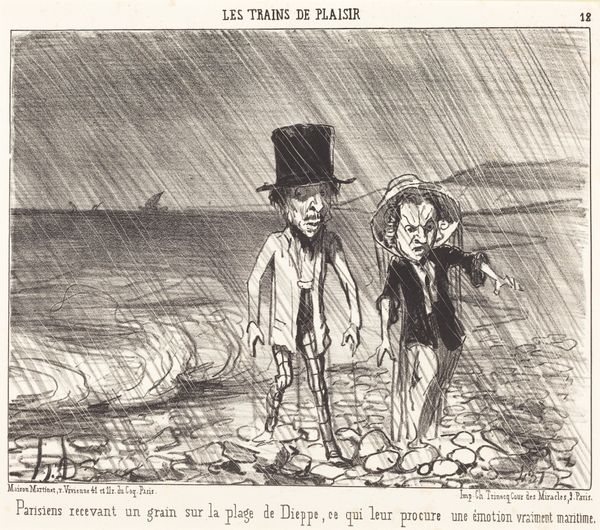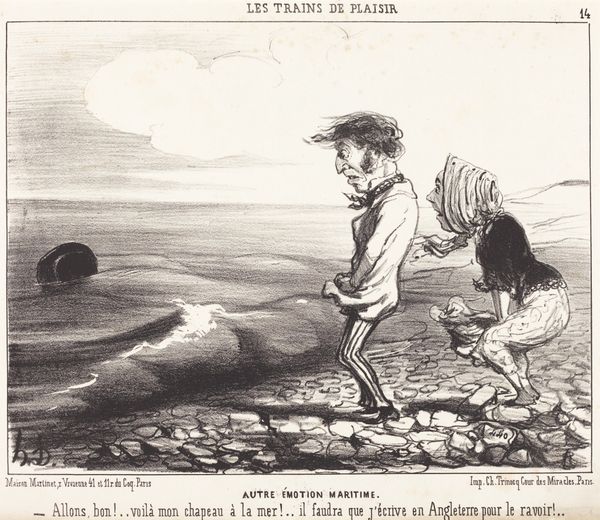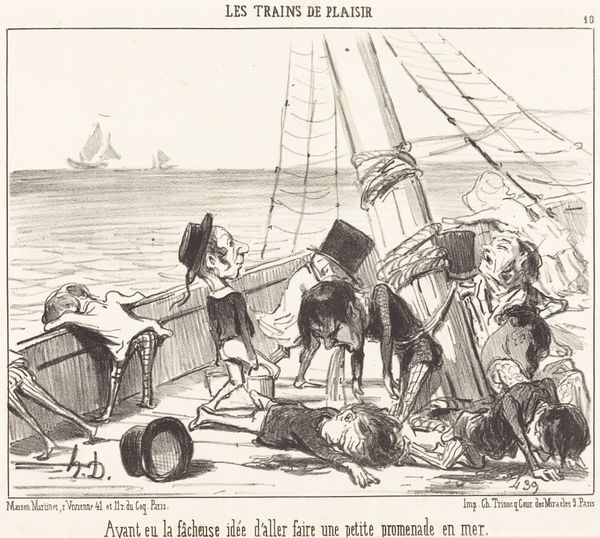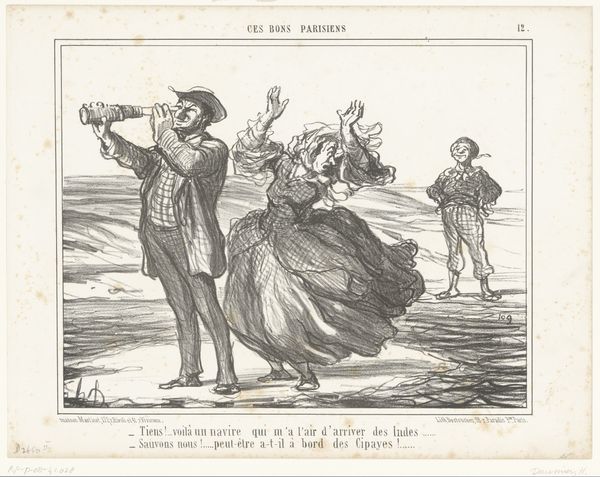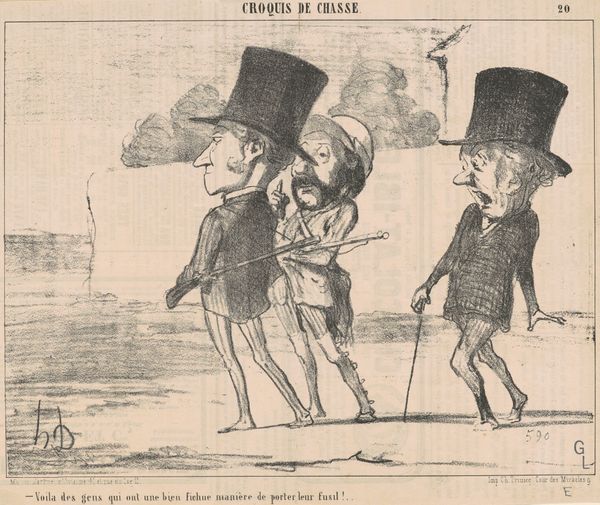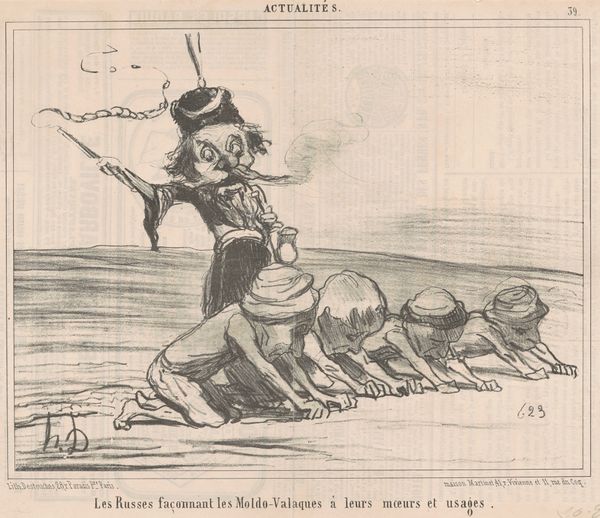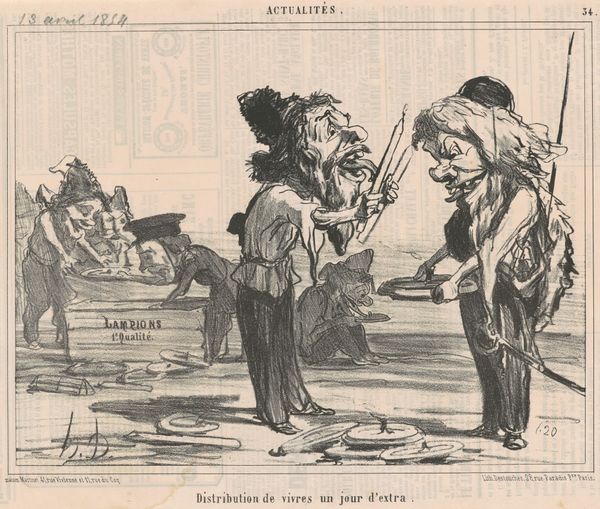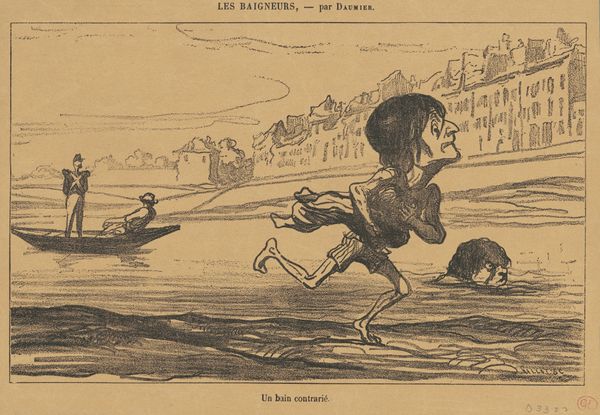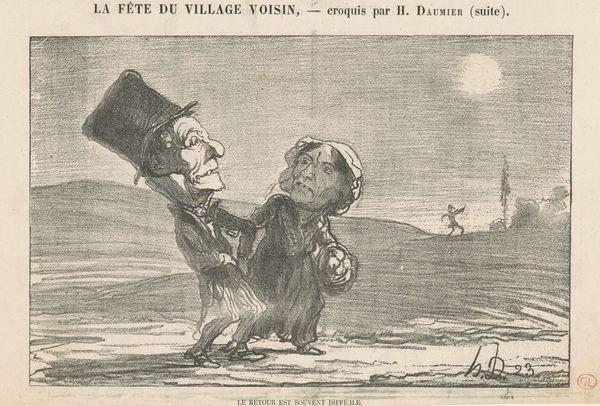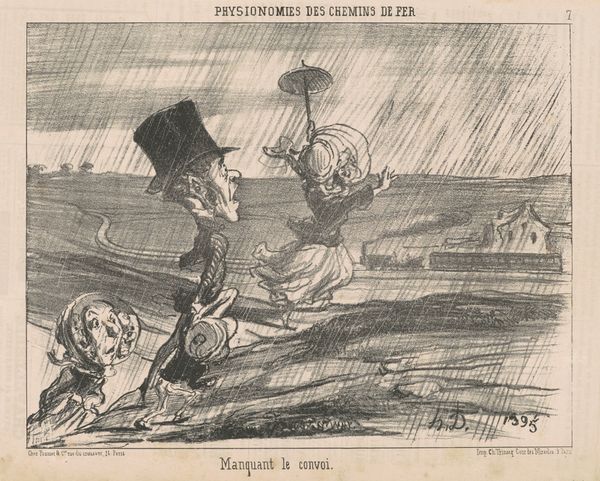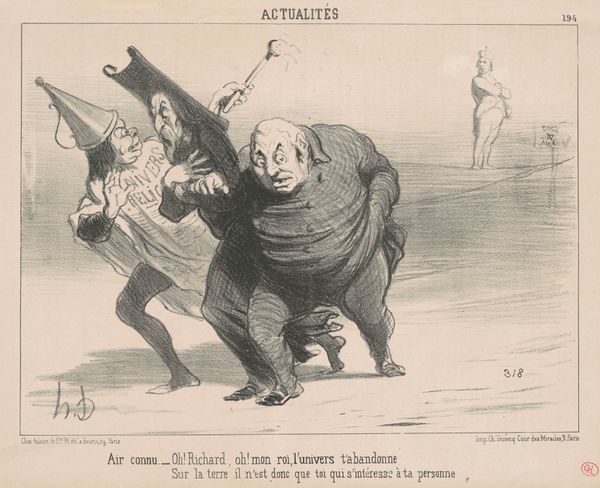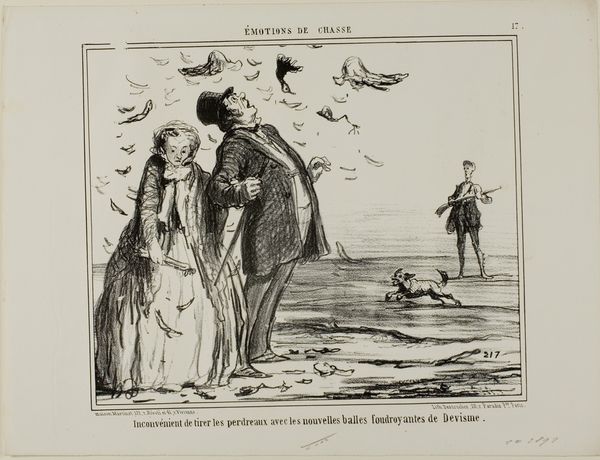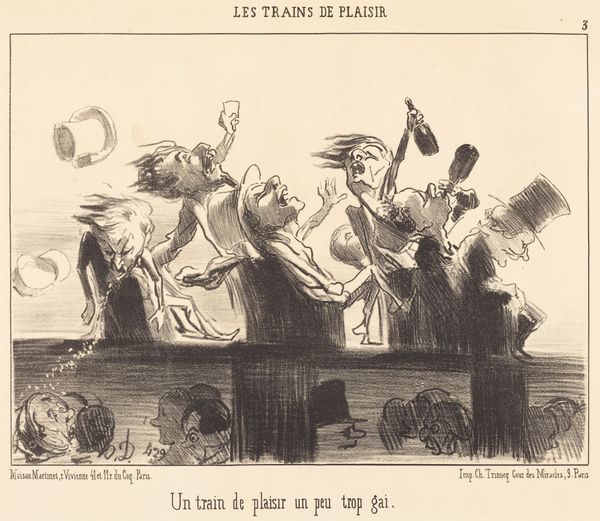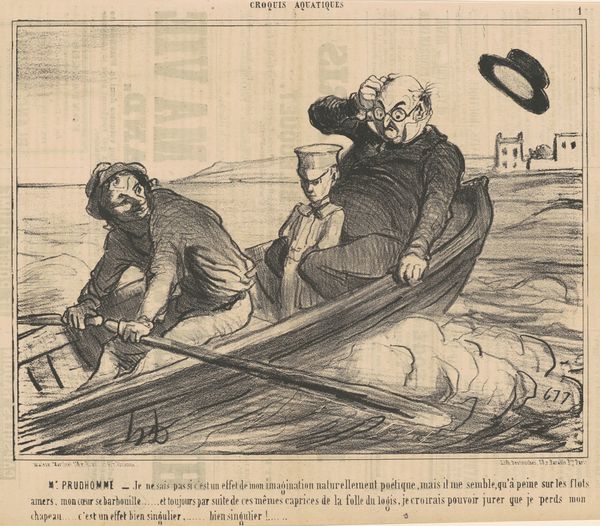
Copyright: National Gallery of Art: CC0 1.0
This is a lithograph by Honoré Daumier titled "Parisians Surprised by the Rising Tide," likely created mid-19th century. The image depicts city dwellers on a seaside excursion, with the woman’s exaggerated shock and alarm serving as the central emotional motif. The raised hands, a gesture we see echoed through art history—from ancient orants in early Christian art to theatrical poses in Renaissance paintings, signals distress and helplessness. In the Middle Ages, such a gesture might have signified supplication to a deity, whereas, here, it conveys a more secular, almost comical fear. Consider the image of a figure with raised arms in Edvard Munch’s “The Scream,” the psychological weight of anxiety becomes palpable. Here, it's as though the collective memory of fear and vulnerability surfaces, transmuted into social satire. The emotional power in this simple gesture engages viewers on a deep, subconscious level, reminding us of our shared human experience. It’s a primal response, constantly resurfacing and evolving across time.
Comments
No comments
Be the first to comment and join the conversation on the ultimate creative platform.
